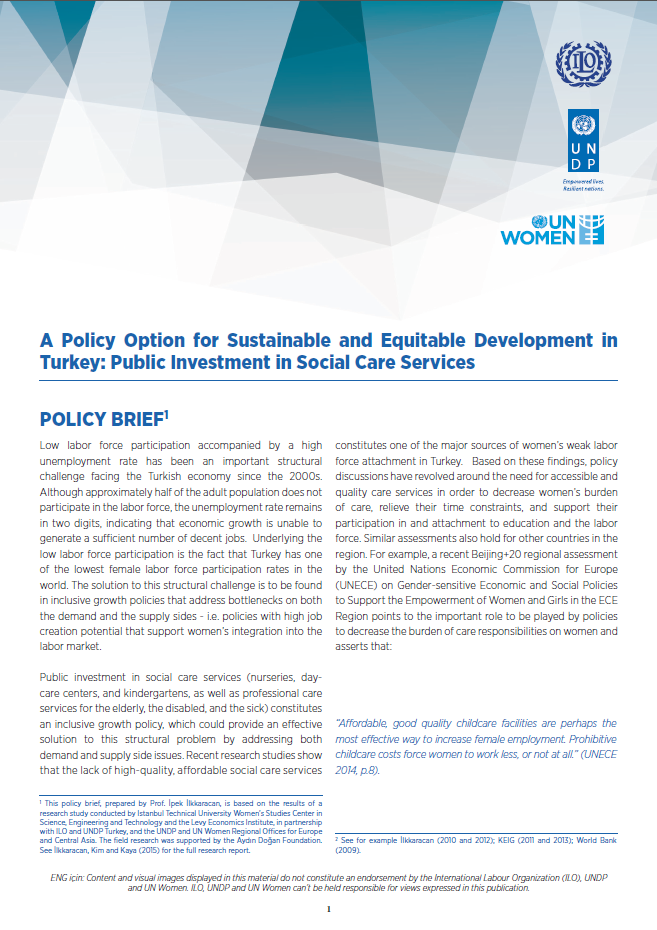
A Policy Option for Sustainable and Equitable Development in Turkey: Public Investment in Social Care Services

Low labour force participation accompanied by a high unemployment rate has been an important structural challenge facing the Turkish economy since the 2000s. Although approximately half of the adult population does not participate in the labour force, the unemployment rate remains in two digits, indicating that economic growth is unable to generate sufficient number of decent jobs. Underlying the low labour force participation rate is the fact that Turkey has one of the lowest female labour force participation rates in the world. The solution to this structural challenge is to be found in inclusive growth policies that address bottlenecks on both the demand and the supply sides - i.e. policies with high job creation potential that support women's integration into the labour market. Public investment in social care services constitutes an inclusive growth policy that addresses both demand and supply side issues. This brief, based on a macro-micro policy simulation study for Turkey, demonstrates that public investment in in early childhood education would be key to creation of decent jobs in Turkey, especially for women and that such public investment is more effective in job creation than public investment in physical infrastructure.